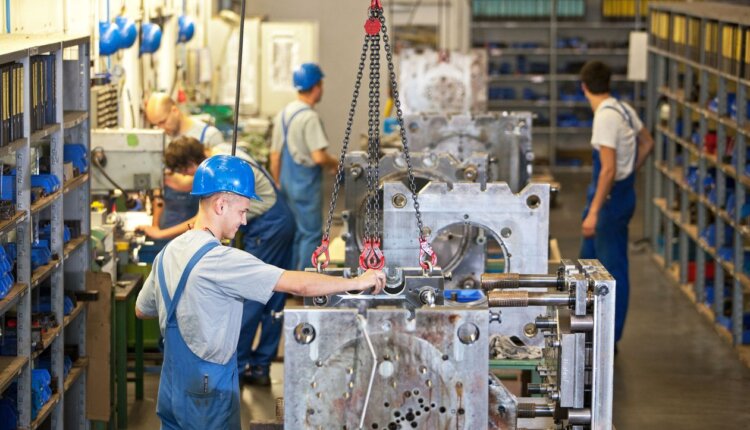Saving energy at work, The past few months have not exactly been easy for the automotive and industrial supplier Schaeffler. Although sales grew a bit, the price was that the Herzogenaurach-based company took on some of the increased expenses for the manufacture of the parts themselves.
In addition to materials, freight and logistics, the cost drivers also included oil and gas in particular.
The fact that the bottom line is still around 200 million euros in profit is recorded by observers under the keyword “black eye”, combined with the warning that things could get even worse in the coming months. When it comes to energy in particular, there is no end in sight to the crisis. On the contrary.
A Schaeffler task force is to help anticipate the effects in good time. Individual measures are planned for each individual plant and some have already been implemented. “We are able to adapt gas consumption to the current supply situation at short notice,” explains Group spokesman Daniel Pokorny. If necessary, specific measures could be implemented by making changes to the work processes saving energy at work.
But the workforce will also feel the effects of the changes: through adjustment of the shift models or the use of home office.
Most of the larger and smaller medium-sized companies are in a similar situation to Schaeffler. The energy emergency is by no means only in autumn. The purchase prices are currently so high that in some cases production is no longer worthwhile.
According to a survey by the German Chamber of Industry and Commerce (DIHK), 16 percent of medium-sized industrial companies already see themselves forced to give up individual business areas.
Almost a quarter of the companies surveyed have already taken appropriate steps, and another quarter are in the process of doing so. And half of those questioned said that this was not the end of the story.
Energy emergency not only in autumn so Saving energy at work is important.
So it’s no wonder that in the German economy there are intensive discussions about where further savings can be made: in order to save a large part of production. And to survive the crisis to some extent. This also applies to the really big companies.
The consumer goods manufacturer Henkel started the month by announcing that it would significantly lower the temperature in the administration offices and offering its employees the way as an alternative to the home office.
At Frankfurt Airport, the focus is initially on numerous measures that can be implemented in the short term to save additional energy. Many steps have already been implemented, a company spokesman. For example, the circulating air supply has been reduced so that less warm air gets into the terminals. This reduces the cost of air conditioning.
“Towards winter, the measures will also focus on using less heating energy by reducing the room temperature in the terminals and offices, as far as the minimum requirements from the applicable workplace guidelines allow,” said the spokesman. The goal is energy savings of around 15 percent.

Energy efficiency has also been a priority at Deutsche Telekom for a long time. In the past five years, the CO₂ emissions of properties heated with heating oil, gas or district heating have been halved, a spokesman said. “We have a potential gas embargo in mind and are preparing for various scenarios.”
With regard to the (office) workplaces, the guidelines of the currently valid workplace guidelines are adhered to, which stipulate a minimum temperature of plus 20 degrees for light work while sitting, for example. »Should there be (even temporary) changes to the regulation, we would of course take them into account.
Tangible competitive factor
The Leverkusen chemical group Bayer also reported to the “Handelsblatt” about plans to lower the temperature in the buildings of the German locations by at least one degree Celsius. Normal are actually 20 to 22 degrees in winter, said a spokesman. Truck specialist Daimler Truck even wants to lower the room temperature in its production halls and offices by two degrees when the heating season begins.
In the meantime, even in medium-sized companies, everything is under scrutiny. The energy guzzlers include compressed air systems for operating tools as well as the process heat required for processing wood and plastics. Smaller cooling chambers and clean rooms could also contribute to energy saving.
DIHK expert Niclas Wenz, however, warns against excessive expectations. “Most companies have been familiar with the topic of saving energy at work not just since the gas crisis, it has long been a tangible competitive factor.” That’s why it’s usually not about raising awareness or implementing simple savings measures now, but rather tracking down the last percent and internal shutdown scenarios to develop.

